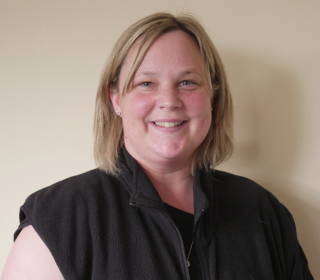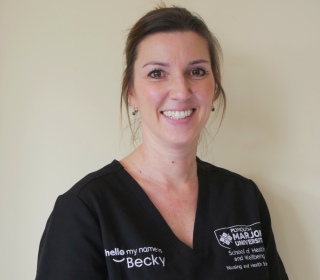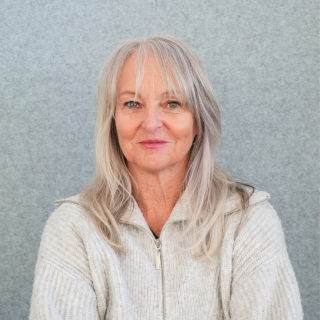MSc Registered Nurse Degree Apprenticeship (Learning Disability)
Pioneering Excellence in Learning Disabilities Nursing, Study Local, Stay Local, Impact Global


Revolutionising Learning Disabilities Nursing Education in the Southwest

Apply now for this course
GCSE Maths Grade 4 / C or above or L2 Functional Skills GCSE English Grade 4 / C or above or L2 Functional Skills
All students must have achieved a minimum of a first degree (2:2 or above) Minimum of 750 hours in clinical practice prior to starting programme
Applicants to the programme will be selected using a values-based recruitment process, where applicants are required to undertake a series of activities. Service Users and Employers form part of these activies and the formal panel . Potential applicants applying must demonstrate the following on entry to the programme:
- Suitability for their intended field of nursing practice: adult, mental health or learning disabilities nursing
- Values in accordance with The NMC Code (2018) Professional standards of practice for nurses, midwives and nursing associates
- Capability to learn behaviours in accordance with The Code
Full entry requirements
Candidates must also complete an Enhanced Disclosure and Barring Service (DBS) check which must be satisfactory prior to commencing the course .
Candidates must receive a satisfactory occupational health clearance prior to commencing the course. As part of the health clearance checks you will be required to provide information about your immunity and vaccination status. Candidates must prove they have been immunised against Rubella, Measles, Tuberculosis and Hepatitis B. We strongly recommend that all successful applicants (unless exempt on medical grounds) receive a full course of Covid-19 and Influenza vaccinations prior to commencing the course.
Recognition of Prior Learning (RPL) and Recognition of Prior Experiential Learning (RPEL) can be applied for but cannot exceed 50% of the programme. The only exception to this is if you are a registered nurse with an active PIN without restrictions, on the Nursing and Midwifery Council (NMC) register and you wish to gain additional NMC registration in another field of nursing . In this instance, applicants can apply for more than 50% RPL/RPEL. All RPL claims for NMC programmes are assessed on an individual basis and approved by an external examiner as part of the School of Health and Wellbeing's RPL/RPEL processes.
Want to know more about apprenticeships?
Contact our apprenticeship team
Course Summary
Embark on a groundbreaking journey with our pioneering MSc in Learning Disabilities Nursing, the first of its kind in the Southwest. This two-year programme is meticulously designed to empower dedicated individuals with the knowledge and skills required to excel in the specialised field of learning disabilities nursing. In the inaugural year, students dive into comprehensivemodules, gaining a deep understanding of learning disabilities, assessment techniques, and evidence-based interventions.
This foundational knowledge is complemented by hands-on clinical placements, allowing students to apply their learning in real-world settings. With three diverse placements throughout the year, students gain invaluable insights into various aspects of learning disabilities nursing practice. The second year focuses on advanced topics, enabling students to develop specialised expertise in areas such as behavior management, assistive technologies, and person-centered care planning. Building upon the previous year's foundation, students engage in a deeper exploration of complex learning disabilities and innovative interventions. The three additional placements in Year Two provide opportunities for students to further hone their skills in diverse clinical environments, from community-based support to specialized care facilities.
Study Local, Stay Local: Impact Global
Being the first programme of its kind in the Southwest, this unique learning experience allows students to remain in their community while accessing a world-class education. This local focus not only fosters a strong sense of community but also encourages graduates to become leaders and advocates for learning disabilities care in the region.
Our program is dedicated to producing graduates who are not only well-versed in the latest advancements in learning disabilities nursing but also compassionate, culturally sensitive, and capable of providing individualized support to those with learning disabilities. Join us in this dynamic two-year journey, where your passion for learning disabilities nursing will be nurtured and your potential will flourish.
Why choose this course at Marjon?
A faculty of experienced professionals renowned for their expertise in healthcare education.
Immersive two-year format, coupled with three placements per year, ensures that you receive extensive hands-on experience in real-world clinical settings
Experiential learning approach allows students to apply theoretical knowledge to practical situations, preparing them for the challenges of adult nursing
Marjon's focus on "Study Local, Stay Local" allows students to study in their own community while still accessing a world-class education
The programme places a strong emphasis on holistic care, recognising the importance of addressing not only physical health but also the emotional, social, and cultural aspects of well-being
Emerge as a skilled, compassionate, and capable professional, ready to make a positive impact in the lives of people with learning difficulties
Modules for this course
Course Snapshot
“ The groundbreaking MSc in Learning Disabilities Nursing at Marjon is a two-year program designed to equip passionate individuals with the specialized knowledge and hands-on skills needed to excel in the field. In the first year, students build a strong foundation in learning disabilities, complemented by three diverse clinical placements. The second year focuses on advanced topics, empowering students to develop specialized expertise. With an emphasis on local accessibility, this program is the first of its kind in the Southwest, allowing students to study and make a meaningful impact in their community. Graduates emerge as compassionate, driven professionals ready to lead in learning disabilities nursing.”
1st Year
Biological and pharmacological aspects of health and well-being
Placement 1: Introduction to nursing practice
Evidence based practice, research methodology and clinical decision making.
Placement: Applying evidence in clinical practice.
Developing knowledge and skills in complex care
Placement: Integrated care for Nursing practice
2nd Year
Healthcare Management
Placement: Developing leadership and management in healthcare
Quality improvement
Placement: Improving safety and quality of care for those with complex needs in practice
Transition to practice
Placement : Transition to practice-consolidation and sign off
This course is perfect if you're curious about...
The intricacies of learning difficulties nursing
Applying your passion in a dynamic and immersive learning environment
Making a tangible difference in the lives of those with learning difficulties facing diverse health challenges
Developing a holistic approach to care and understanding the broader factors influencing the health of people with learning difficulties
Preparing for a wide range of roles in learning difficulties nursing
What might you become?
On successful completion of the programme you will be eligible to apply to register with the Nursing and Midwifery Council as a Learning Disabilities Nurse. As a Learning Disabiltiies nurse, you may work in various settings, including hospitals, community health centres, residential care facilities, and schools. Your responsibilities could include assessing and planning care, administering medications, providing emotional support, and advocating for the rights of individuals with learning disabilities and difficulties.
Furthermore, this programme may open doors to advanced roles such as clinical nurse specialist, nurse manager or supervisor, or even positions in research or policy development related to learning disabilities nursing. Additionally, you may have opportunities for further education and specialisation in specific areas or advanced practice nursing.
This programme prepares you for a fulfilling career dedicated to making a positive impact in the field of learning disabilities nursing.
“ Introducing Learning Disabilities Nursing to our region is not just a milestone; it's a promise of transformative care, an investment in inclusivity, and a testament to our commitment to leaving no one behind.”
How you’ll be taught and assessed?
How will you be taught?
The Learning Disabilities Nursing programme at Plymouth Marjon University employs a diverse array of teaching methods to ensure a dynamic and comprehensive educational journey. This encompasses conventional approaches such as lectures, seminars, and tutorials, providing students with a strong foundation of knowledge and opportunities for interactive discussions. Additionally, e-learning platforms enhance accessibility and flexibility in study.
Our focus on Personal and Professional Development Planning empowers students to take charge of their learning. Practical skill development and exposure to industry insights are fostered through workshops, peer learning, and guest speaker sessions. Practice-based and Problem-based Learning, along with Interprofessional Learning, cultivate critical thinking and collaborative abilities. Personalised support is provided through Coaching and Mentoring, while Clinical Simulation offers a hands-on, immersive learning experience.
How will you be assessed?
Assessment is meticulously designed to provide a comprehensive evaluation of students' knowledge and proficiency. This incorporates innovative tools like the ePractice Assessment Document (ePAD) and eOngoing Achievement Record (eOAR), facilitating continuous monitoring of progress and competency. Critical Reflection, Case Studies, and Essays create opportunities for in-depth analysis and the practical application of theoretical concepts. Neighbourhood Studies and Presentations promote the hands-on application and effective communication of learning.
Additionally, assessments such as Numeracy and Drug Calculation Skills In-Class Tests guarantee proficiency in vital clinical skills. The Dissertation culminates in independent research and a thorough exploration of a chosen area within mental health nursing.

Tracey is involved in Research and she is also working currently as a Clinical Research fellow exploring Virtual wards, locally. She is also facilitating psychological therapies for patients with diabetes and previous foot ulcers, for a national perspective.
Lecturers
Frequently asked questions
Q1 What resources and facilities are available to students on-campus to support me in the clinical setting?
Q2 How does the university support students in terms of career guidance and job placement after graduation?
Q3 What is the learning environment like at Plymouth Marjon University, and how is diversity and inclusion valued within the programme?
Fees and funding
Fees UK students: £20,000
As an employee, apprentices are paid a salary and through the Apprenticeship Levy of the supporting organisation, the following services are provided at no cost: tuition fees, tripartite reviews, End-Point Assessment (EPA), access to course-specific equipment and facilities including the Clinical Simulation Suite Associated academic services including the library, study skills training, IT support, student support and wellbeing services, and membership of the Student Union. Employers: For larger employers, apprenticeship levy funding can fully meet the costs of training, assessment and certification. For smaller employers, funding may be available to support fees.
Additional costs:
Additional costs:
- Disclosure and Barring Service (DBS) enhanced check (Annual Update Service or dated within 6 months of the start of the course)
- Evidence that an occupational health declaration has been completed prior to starting the programme
- Evidence of all required vaccinations being up-to-date
- Travel to and from placement
- Accommodation and general living costs
- Textbooks
- Stationary
- Printing/Photocopying
- Membership of a Union (Optional but advised)
- NMC registration on completion of the programme.
- There may be some discretionary trips and other activities to support your studies
Funding available for this course
Our Student Funding Advisors offer confidential and impartial advice about your funding options.
Student funding advice

